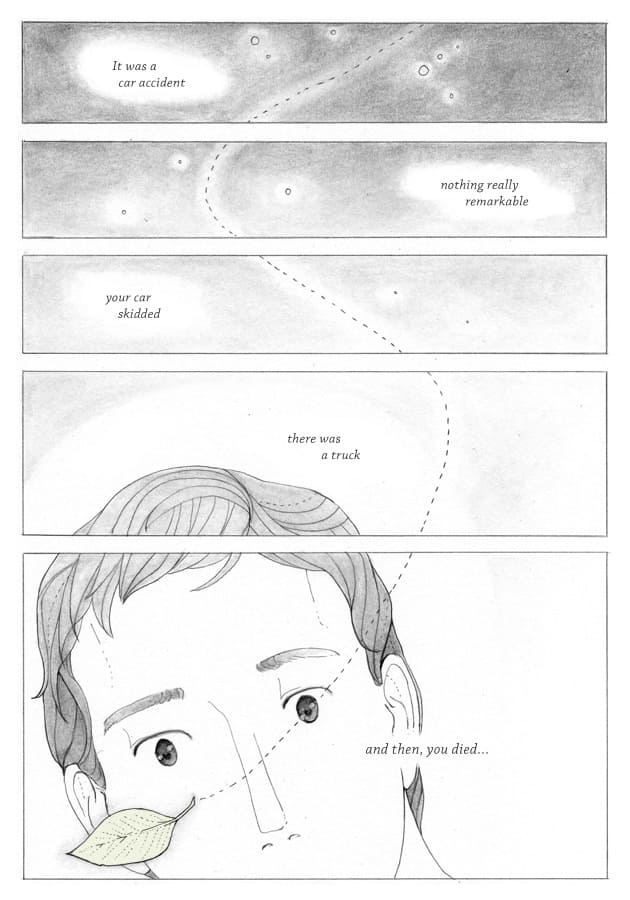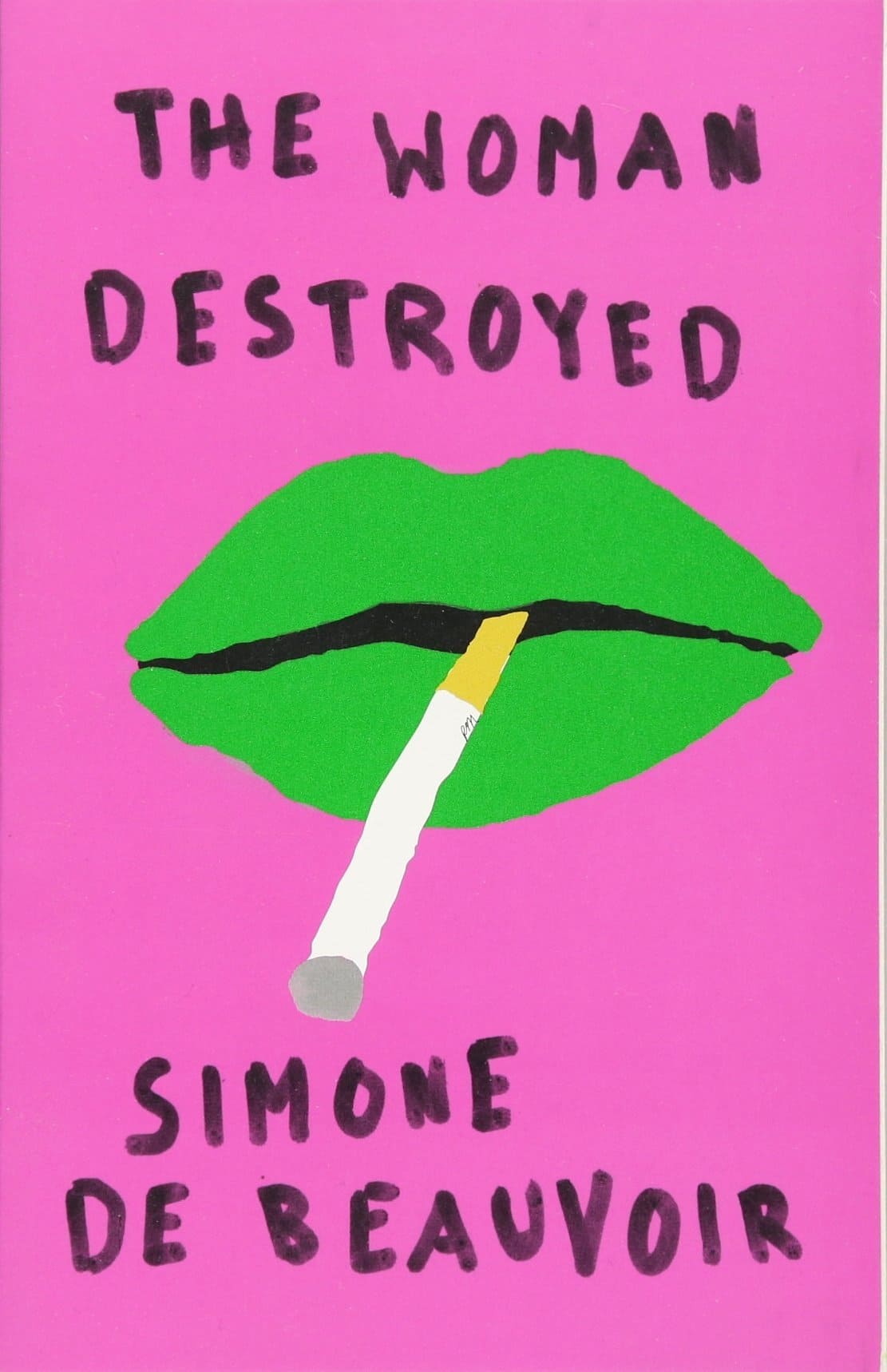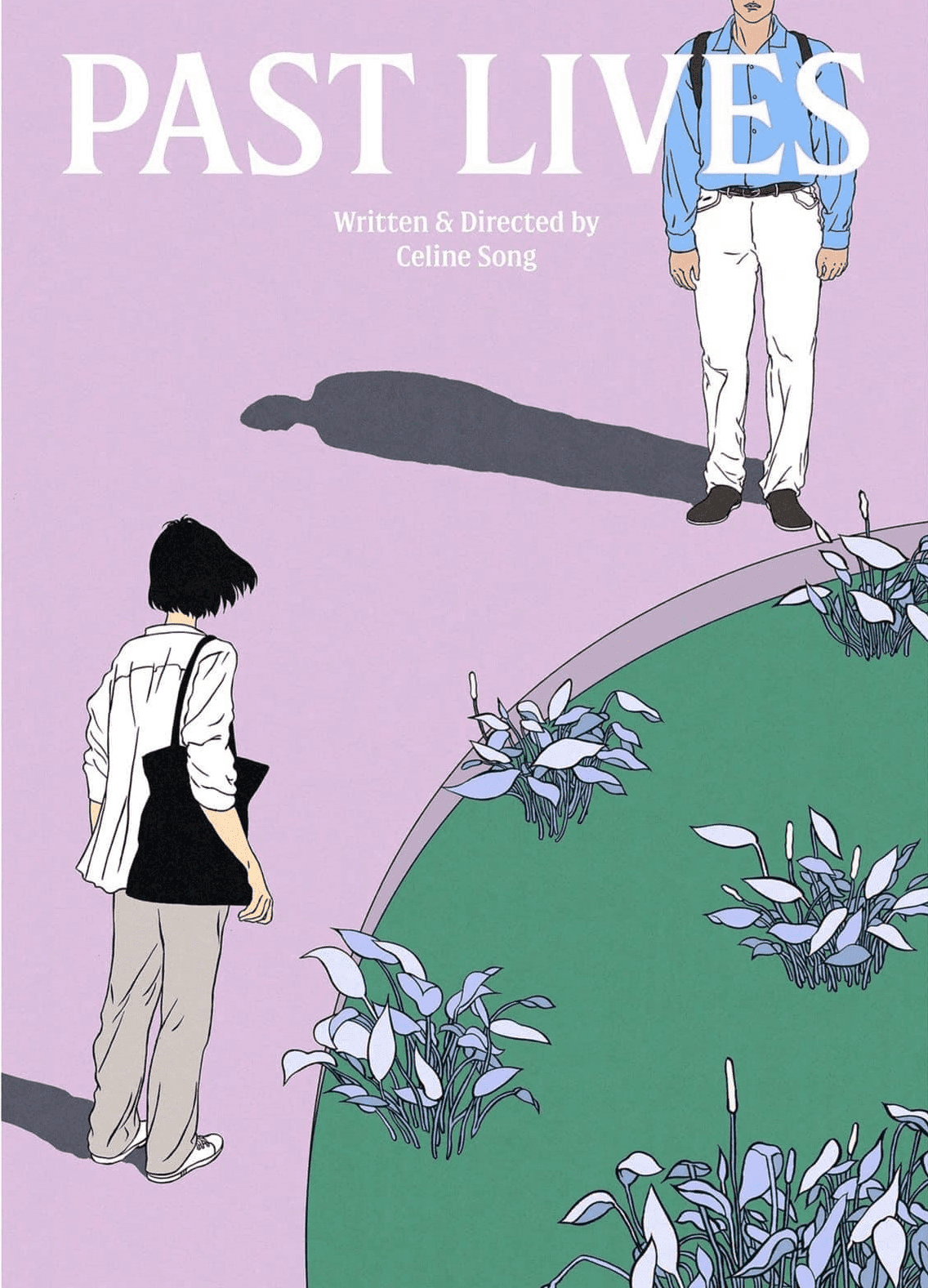“So what’s the point, then?” You asked. “When I get reborn, I’ll just be a blank slate, right? A baby. So all my experiences and everything I did in this life won’t matter.”
“Not so!” I said. “You have within you all the knowledge and experiences of all your past lives. You just don’t remember them right now.”
You wake up in a different state, your body is yours but it seems like it doesn’t belong to you anymore. Around you, nothingness. Everything. You’re not certain. You’re… dead. (If you weren’t already before.) An entity, or a voice, rather, communicates with you and turns your life (death) upside down. If so happens that you felt lost in life, you’re going to be even more lost now, because death isn’t what it seemed, either. You discover through this messenger-like voice that each individual is made up of layers and layers of past lives and that you are your life and those of others. You’ve died but it’s your turn to be reborn. Again.
I really like circular storytelling where it seems that every end is the beginning and this beginning is, in turn, a continuation of the end. Although the story itself doesn’t stand out for anything in particular, it proposes an interesting theory, which is not original either (it reminds me of Avatar: The Legend of Aang, Cloud Atlas, but especially of Angel’s Egg and Past Lives itself). The highlighted quote, in particular, resonates with me precisely for this reason. The theme of reincarnation in fiction has always been of great interest to me. The concept of traveling from one body to another without losing your essence, maybe forgetting who you have been, but maintaining yourself, maintaining a part of yourself resonates with me for a reason.
Weir goes a step further with this story and alludes to the fact that each life is the life of a set of lives, not just those that have belonged to us. In the end, it is difficult to separate one I from others, what differentiates me from this life from another me from a previous life and, more importantly, what essence of that I, me or myself remains so that it continues to exist in this one in this new body? Note that life is not equivalent to soul. And the thing is: how can we know or connect with our previous lives? What remains within us with this change of body?

“Every time you victimized someone,” I said, “you were victimizing yourself. Every act of kindness you’ve done, you’ve done to yourself. Every happy and sad moment ever experienced by any human was, or will be, experienced by you.”
We are flattered by the concept of having been special, but only if we were good and relevant people. Here, Weir plays very well with this slightly hedonistic feeling by combining in the same essence the worst and the best of a human being. We carry everything we have done and what we have not; what we have witnessed and what we have never seen; what does not matter to us and what we despise and discard as unimportant. We are a whole set of lives and, at the same time, we are each part that divides them. We are composed by a life, with all its edges and sides, and with its multiplicities. The world is smaller than we imagine, especially when we realize that we are the whole world held up in the same container.
In the end, this story or tale is nothing more than a very simple parable that you can eat up in less than three minutes of reading and that forces you to think. And that is, for me, what gives it value. Its goal is to make you sit down with a blank page and analyze your own psyche, as this review tries to do. As with any other reading, the key is in what it makes you feel. The philosophy behind its words, the introspection to which it leads you.
What do you think about living and dying; are they the same side of a coin, a parallel line that can never collide or do they cross at a certain point? The meaning that each of us (or, all of us: you) gives to life and death is shaped by our experiences and beliefs, but does it matter, in the end? If none of us know what lies beyond, why not imagine. Why not think of an egg (as happens with the well-executed premise of Angel’s Egg) as the capsule to be broken. Is life what’s outside or what’s inside? Is there more than one way to die, just as there are so many ways of living? Does it even matter?
You can read the short story here.



Leave a Reply